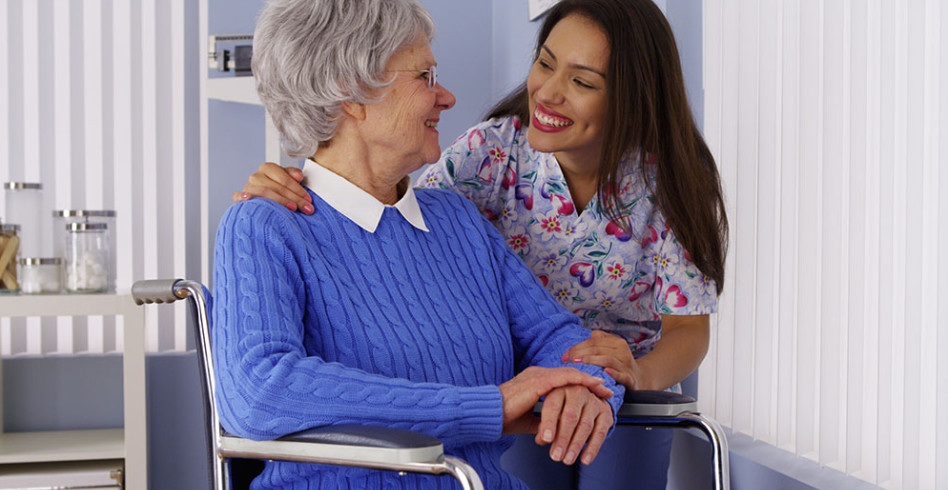It’s not a secret that senior patients tend to either be underserved or overlooked when it comes to emergency care. Unnecessary hospitalizations are one of the main issues but not the only one. Cognitive impairment, sensory deficits, complex health histories, multiple chronic illnesses, and a lack of communication between doctors and patients account for the other issues. Geriatric emergency care needs to do better, and Primary Medical Care Center has the solution for this!
Did you know that adults 65 years and older have 12 times the rate of preventable hospitalization compared to people aged 18-44? These are hard facts and yet, we don’t see this put into practice. Geriatric patients are still overburdening the hospital system. More streamlined emergency care is needed, and we plan on changing the medical landscape in this sense.
You can call us at (305) 751-1500 or use our contact form for more information on geriatric emergency care!
Why Are the Elderly Receiving Less Emergency Care?
Several factors influence the level of emergency care that geriatric patients receive. Among them are:
- Cognitive impairment
- Complex health histories
- Multiple chronic illnesses
- Sensory deficits
- Low income
- Few transport options
- A history of heart disease
In many cases, hospitalization is unnecessary for the elderly, yet it does happen, and it’s highly inefficient for the reasons outlined above. Dangerous medical errors may happen because there’s a lack of communication between the primary care physician and the emergency department.
What can we do to transform emergency geriatric care and make it more efficient and systematic? How can the PCP communicate more efficiently with the EHD and be of more help to senior citizens enduring a medical emergency? We’ve thought long and hard about this, and we’ve come up with three solutions for this problem.
Solutions for the Advancement of Geriatric Emergency Care
- Improve the doctor-patient relationship and focus on trust
The doctor-patient relationship should be based on long-term trust and lead to streamlined emergency care for the patient. Ideally, the PCP should be aware of the patient’s entire medical history and foresee emergency crises before they happen. Even before the patient reaches the hospital, the PCP should be informed and ready to offer detailed information about the patient, such as the patient’s health baseline, any recent acute changes in their health status, complex medical history, and more.
This clinical information can vastly improve the ED’s ability to assess the patient’s current health status and provide personalized care. If hospitalization can be avoided or the hospital stays shortened, then this solution should be put into practice as soon as possible. Based on our estimations, this will have vastly beneficial effects on geriatric emergency care.
- Implement a more efficient line of communication and partnership between the PCP and the ED
It comes as no surprise that the ED treats every patient as an unknown factor. They don’t know the patient’s medical history, baseline health, or any recent changes in health, and this leads to an inefficient type of care. The PCP would be able to provide that key information but, in most cases, the line of communication between the PCP and the ED is vastly inefficient and thwarted at every step of the way.
Implementing a smart and simple communication system between the PCP and ED would allow the team to be informed and ready even before the patient arrives. This way, no time is wasted and the patient receives personalized medical care immediately, with no delays. More often than not, those delays further endanger a senior patient’s life and health status.
- Use emergency room alternatives
The best way to prevent hospitalization is to not send the patient to the ED in the first place. The PCP should be contacted at once and asked about the possibility of a non-hospital-based acute care center where older patients may receive complex care, including CAT scans, infusions, treatments, lengthy observation, and more. These centers are not crowded and are patient-centered, nonetheless.
However, this is largely dependent on the communication between the PCP and the ED physician, as well as the patient’s trust in the PCP!
A Patient-Centric Approach Is Necessary
Primary Medical Care Center estimates that the only way geriatric emergency care could be streamlined is to implement a humanized patient-centric approach. The PCP-patient relationship should be fostered beyond what it is today, and patient care should be of utmost importance for all medical centers. Generally, patients 72 and older have approximately 5 or more chronic medical conditions, which leads to maximum health risks if treated improperly or late.
There’s a need for collective efforts and cooperation between healthcare professionals to deal with the lack of efficiency in geriatric emergency care. Senior patients are at much more risk of falling ill or even death. Their rate of preventable hospitalization is much higher than younger patients too.
You can call us at (305) 751-1500 or use our contact form for more information on geriatric emergency care!
